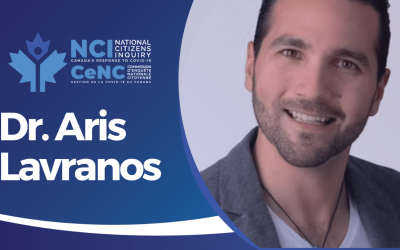In its report of October, 2002, the Senate social affairs committee concluded that it is not just and reasonable in a free and democratic society for government to ration publicly funded health services so tightly that individuals suffer, or even die, while waiting for treatment, and that governments prevent individuals from obtaining the service in Canada at their own expense. The Supreme Court agreed with the Senate committee.
Given this decision, the question then becomes: What should governments and service providers do about it? There are two choices — shorten waiting times so an individual’s right to life, liberty and security of the person under Section 7 of the Charter of Rights and Freedoms is not violated, or allow a parallel, privately funded health-care system.
The court had no choice but to address directly the failure of governments and service providers to give Canadians timely access to the health-care system. Indeed, the court decision reflected the careful balance of powers between the legislative and judicial branches of government, which is reflected in the Charter.
The purpose of the Charter is to protect individuals against government action — or inaction — that impairs their rights. Excessive rationing of health services is an extreme example of government inaction.
The Senate committee said Canadians are entitled to timely service, which we called the “care guarantee.” The brilliance of the court’s decision is that it did not prescribe a solution to the problem. It said only that an individual’s Section 7 rights must not be violated.
The Senate committee continues to urge a program that would preserve medicare while ensuring that individual rights are protected.
The most significant change required is a change in attitude by politicians, doctors and all those involved in providing health-care services.
Those on the political left need to confront reality: Do they continue to cling to the myth that all health services in Canada must be delivered by a public service provider, or will they finally accept that the only way to reduce wait times and save our publicly funded single-payer health-care system is to allow the contracting out of certain services to specialized clinics, regardless of what their ownership structure is.
For example, will the political left continue to insist that all cataract operations be performed in public hospitals when the same service can be provided more cheaply with the same quality in stand-alone clinics? This change would eliminate waiting lists for cataract operations in nine months. A similar conclusion holds for imaging procedures such as MRI scans, and some orthopedic procedures, such as joint replacements.
If the left clings to the myth that the Canada Health Act requires health-care services be provided only in publicly owned hospitals, it will hasten a parallel, privately funded system.
The Senate committee’s plan also includes allowing regional health authorities to seek competitive bids for services from the most efficient supplier available, regardless of the supplier’s ownership structure. The committee would require hospitals and the people who work in them to become more efficient by eliminating complex and rigid work rules. The committee would also require that primary-care services be delivered through multi-disciplinary clinics mainly funded on capitation rather than a fee-for-service basis.
Two changes in attitude are also required of Canadians. First, patients must be prepared to get their treatment at times of the day and in locations that are not necessarily the most convenient for them.
Second, once all the inefficiencies in our health-care system are eliminated, Canadians must be prepared to pay more money to government to adequately fund the single-payer system.
Without the court ruling, governments might well have continued to talk about reducing waiting times without doing anything about them. By raising the spectre of a parallel, privately funded system, the court has put great pressure on governments to actually deliver on their good intentions.
Senator Michael Kirby heads the standing Senate committee on social affairs, science and technology. Senator Wilbert Keon, a physician, is the committee vice-chair



